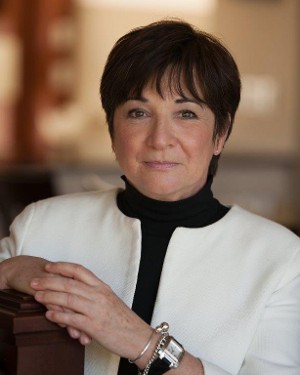Delta, Vancouver
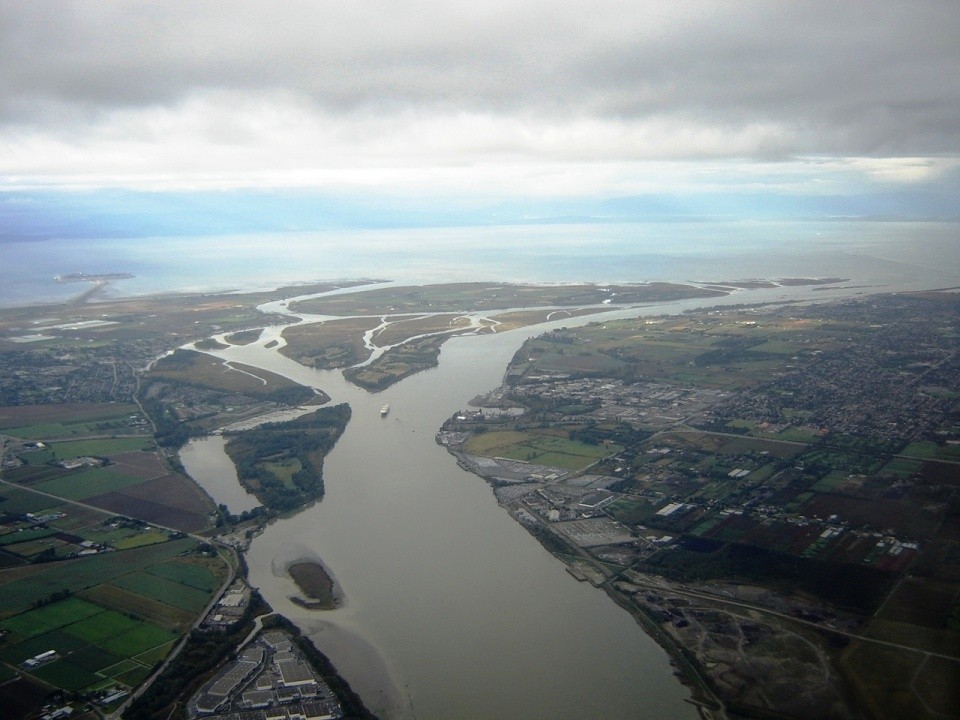
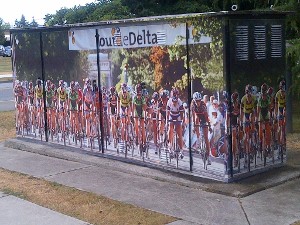
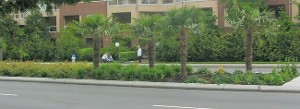
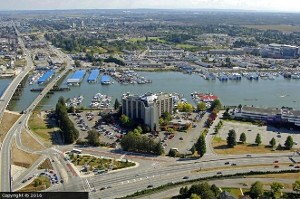
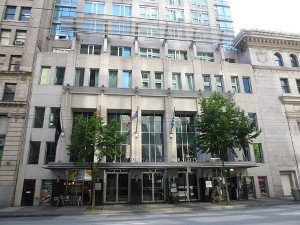
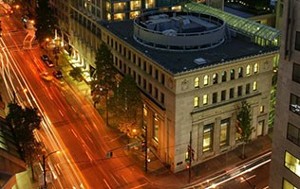
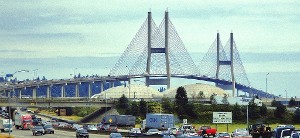
History
Prior to European settlement, Delta's flatlands and coastal shores were inhabited by the Tsawwassen indigenous peoples, of the Coast Salish First Nations. The land was first sighted by Europeans in 1791, when Spanish explorer Lieutenant Francisco de Eliza mistook the area for an island and named it "Isla Capeda". The first European settler in Delta was James Kennedy who pre-empted 135 acres in what later became Annieville in February 1860. Thomas and William Ladner, began farming the area named after them in 1868. Farming and fishing helped the community grow quickly over the next few decades. In 1879, the area was incorporated to become "Delta", and the village of Ladner was made as its administrative centre.
Due to its geography, Delta was a relatively isolated community. The completion of the George Massey Tunnel in 1959 linking Ladner to Richmond and Vancouver along with the opening, in 1960, of the Tsawwassen Ferry Terminal and the Highway 99 being rerouted from the King George Highway in Surrey in 1962 to a new route through Delta, ended Delta's isolation and resulted in a massive 400% population growth over the next 20 years. The 1986 completion of the Alex Fraser Bridge connecting North Delta to New Westminster and Vancouver also helped Delta's growth.
Population and people
As of 2005, Delta's population was 102,655. About 23% of Delta's population are visible minorities, of which there are approximately 12,000 South Asians and 5,400 Chinese Canadians. There are also about 1,400 Aboriginal peoples, some from Tsawwassen First Nation, who still hold a fraction of their former traditional territories on the Tsawwassen First Nation at the mouth of the Fraser River, which are shared with the Hwlitsum First Nation from the Gulf Islands
Communities
Delta comprises three distinct, geographically separate communities:
- North Delta (pop: 51,623) is home to over half of Delta's population. It is a largely suburban area in north-east Delta bordered by the Burns Bog and Surrey.
- Ladner (pop: 21,112) is a 19th-century fishing village in north-west Delta that has expanded into a suburb. Fishing and farming are important industries. Ladner Trunk Road is its main street.
- Tsawwassen (pop: 20,933) is a suburban community in south-west Delta that calls itself the sunniest place in Metro Vancouver. Luxury waterfront homes line Tsawwassen's coast. Tsawwassen is also home to the busy Tsawwassen Ferry Terminal which links the mainland to Vancouver Island and the Gulf Islands. Tsawwassen, together with Ladner are also known as South Delta.
Demographics
According to the 2011 Canadian Census,[3] the population of Delta is 99,863, a 3.3% increase from 2006. The population density is 554.4 people per square km. The median age is 42.8 years old, which is a bit higher than the national median age at 40.6 years old. There are 35,781 private dwellings with an occupancy rate of 97.1%. According to the 2011 National Household Survey, the median value of a dwelling in Delta is $562,181 which is significantly higher than the national average at $280,552. The median household income (after-taxes) in Delta is $71,590, quite higher than the national average at $54,089.
Delta is a fairly diverse city. The racial make up of Delta is:
- 67.5% White
- 17.2% South Asian; 15.6% Indian
- 7.2% East Asian; 5.7% Chinese, 0.4% Korean, 1.0% Japanese
- 3.2% Southeast Asian; 2.7% Filipino
- 2.3% Aboriginal; 1.3% First Nations, 0.9% Metis
- 0.7% Latin American
- 0.5% Black
- 0.1% West Asian
- 0.1% Arab
- 0.7% Multiracial; 1.6% including Metis
- 0.3% Other
Most of Delta is either Christian (44.9%), or affiliates with no religion (37.1%), but there is also large Sikh (10.6%), Hindu (3.0%), Muslim (2.0%) and Buddhist (1.3%) communities. The remaining 1.1% affiliate with another religion.
Geography and climate
Delta is located 27 kilometres (17 mi) south of Vancouver and 22 kilometres (14 mi) north of the Canada–US border at Peace Arch, Surrey. It is bordered by water on three sides: The Fraser River to the north, the Georgia Strait to the west and Boundary Bay to the south. At 364 square kilometres (141 sq mi), Delta is the largest municipality in the GVRD; the second largest is its neighbour to the east, Surrey, at 317.4 square kilometres (122.5 sq mi).
Delta's flat, fertile land has made it one of the most important agricultural areas in Greater Vancouver. The Agricultural Land Reserve regulations preserve most of this land for agricultural use, preventing its conversion to suburban housing. North Delta is also home to the Burns Bog, 40 square kilometres (10,000 acres) of natural wetlands that are important for wildlife.
Government and politics
Delta is governed by the Delta Municipal Council, led by a Mayor and six Councillors, elected for four-year terms, and there is also an elected school board. The current mayor is Lois Jackson. Unlike most communities in Canada, but like Vancouver and Richmond, Delta has a system of locally based election slates such as TriDelta, IDEA, One Delta, Delta Residents Association, Delta Connect and DIVA.
In the 2013 Provincial election, the North Delta seat went to Scott Hamilton of the British Columbia Liberal Party while the South Delta seat went to independent Vicki Huntington. In the House of Commons of Canada, Delta is part of the Delta electoral district. As of the 2015 elections, Delta's MP seat is held by Carla Qualtrough of the Liberal Party.
Delta, unlike most Lower Mainland municipalities, has its own police department.
Power
In Delta is the Arnott Substation (ARN), the mainland terminal of the HVDC Vancouver Island circuit.
Health
Delta is the westernmost community served by Fraser Health Authority which operates Delta Hospital in Ladner and also funds home and community care. The Delta Hospice Society operates a facility near to the hospital.
Education
Delta Public Schools operates Anglophone public schools in the city.
The Conseil scolaire francophone de la Colombie-Britannique operates one Francophone primary school in that city: école du Bois-joli.
Delta sports
Delta has many minor sports teams in ice hockey, soccer, football, field hockey, baseball, field lacrosse and box lacrosse. Over 160 young people play ringette in Delta. The Delta Ringette Association has 13 teams in 2005. Notable professional sports players from Delta are Jeff Francis (MLB), Justin Morneau (MLB), Brent Seabrook (NHL), Troy Brouwer (NHL) and Mitch Berger (NFL).
Delta's unique and varying terrain provides a challenging test for many of the world's best cyclists in the Tour de Delta. Since its first event in 2001, the Tour de Delta has grown to be Canada's largest cycling event, held annually in July as part of BC Superweek.
The Delta Triathlon is also a very popular event, selling out each year in April. The event takes place in Ladner from the Ladner Leisure Centre. Over 500 participants take part, including many from the local South Delta Triathlon Club.



